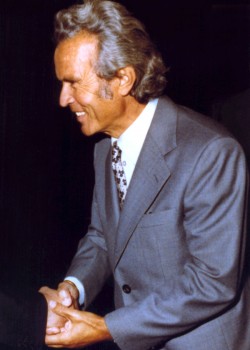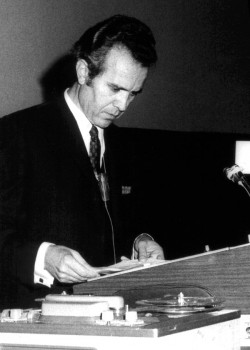Born in Mardīn –an important centre of oriental Christianism– in a zone under French military occupation attached to Syria at the time, the young man grew up in an environment highly marked by Syriac Christianism, which will later clearly show in his writings. In May 1950, at the occasion of the International Conference on Sacred Music held in Rome, he gave a conference on “Syrian Liturgical Music” whose text was published in a Pontifical journal. He started studies at the Jerusalem Benedictine Institute and resumed them at the Syriac-Catholic seminary of Charfet (Lebanon). Enrolled at the Catholic University of Paris, he defended a thesis on Syrian Monarchism from the origins to the Arab conquest at the École Pratique des Hautes Études in 1951.
Redirecting his research towards studying sung popular poetry, he undertook for the CNRS (Centre National de la Recherche Scientifique/National Centre for Scientific Research) in 1954-55 then in 1958, a number of collecting missions in Lebanon, Syria, and Iraq. Which led him to writing an article in the Orient magazine (1958) and a book “La poésie populaire traditionnelle chantée au Proche-Orient arabe” (Sung Traditional Popular Poetry in the Arab Near-East) (Mouton, 1970) demonstrating his full mastery of the local dialects through his translation of the vernacular texts. But the “Musique libanaise” (Lebanese Music) and “Musique syrienne” (Syrian Music) entries he wrote for the “Encyclopédie de la musique” (Encyclopaedia of Music) (Fasquelle, 1958), limited to the examination of his speciality subject area, i.e. oriental Christianism, are simplistic texts in many respects.
In 1964, he was appointed Professor of Islamology and Arab Studies at the university of Geneva. He organized in this city in 1970 the first European concert of future lute star Iraqi Mounir Bashir. The concert was recorded by Emi-Pathé, and Jargy wrote the accompanying text. Later in 1971, he wrote the presentation text of Mounir Bashir’s best recording edited by OCORA (Radio France). He also published the very successful “La musique arabe” (Arab Music) in the «Que sais-je?» series: 23 000 copies, added to an Arabic translation (Jounieh, Lebanon), a record for a work of this kind.
Late in life, he redirected his focus towards the Arabian Peninsula that he visited on a regular basis. He published with Zakariyyā al–Ansārī the “Musical Anthology of the Arabian Peninsula” (4 CDs, Geneva, 1994) whose pieces were for the most part recorded by him. In parallel, he published with Hachette books of more general reach on the region: the first ones “Émirats arabes du Golfe” (Arab Emirates of the Gulf) (1976), Yémen (1978), and Koweit (1980) were co-written with Alain Saint Hilaire. His other writings include: Syrie (Syria) (Lausanne 1962), “Guerre et paix en Palestine” (War and Peace in Palestine) (Neuchâtel 1968), “Islam et chrétienté” (Islam and Christianity) (Genève et Paris 1981), that add nothing to his reputation. Out of his whole production, he mostly distinguished himself in ethnomusicology.
Christian Poché




